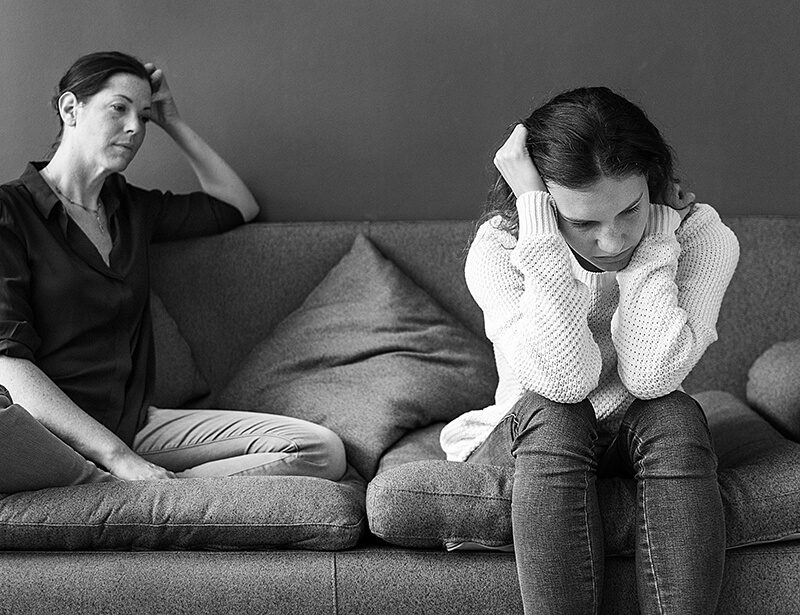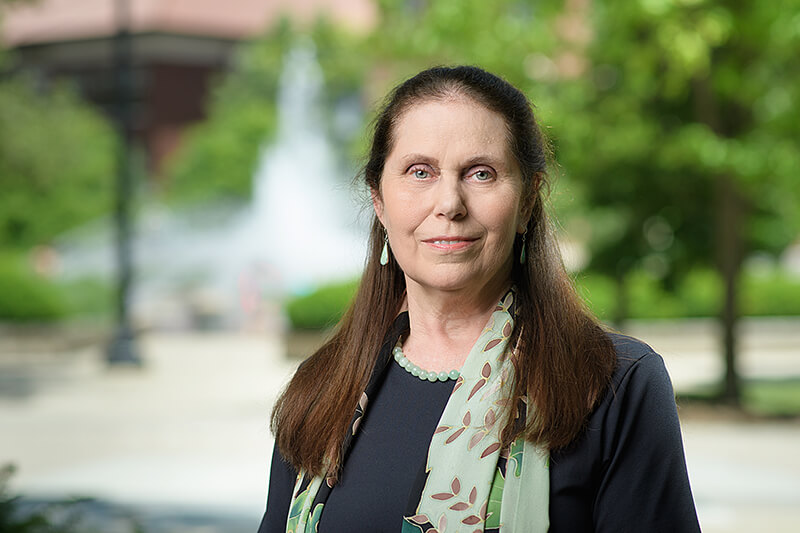December 16, 2019
Holidays with family can be full of conflict. This researcher knows why.

Family gatherings over the holidays can be full of conflict for a variety of reasons, whether it’s disagreements over religion and politics, arguments with in-laws or the recent loss of a family member. (Photo by Raw Pixel)
WEST LAFAYETTE, Ind. — Family gatherings over the holidays can be full of conflict for a variety of reasons, whether it’s disagreements over religion and politics, arguments with in-laws or the recent loss of a family member.
Social science research can explain why many of these conflicts arise, says Jill Suitor, a distinguished professor of sociology in the College of Liberal Arts at Purdue University. Suitor is principal investigator of the Within-Family Differences Study, a 20-year study of more than 550 multigenerational families on the causes and consequences of family conflict and parental favoritism among parents and their adult children.
Religion and politics at the dinner table. Findings from the Within-Family Differences Study show that conflict among family members is more likely to arise when they disagree on values, such as religious or political views, Suitor said.
 Jill Suitor. (Purdue University photo/John Underwood)
Download image
Jill Suitor. (Purdue University photo/John Underwood)
Download image
“People have very strongly held values and if family members disagree, it can be very problematic,” she said. “On top of all of the stress that comes with the holidays and the high expectations that everyone has, tensions might be higher at the moment because you do have all the political intensity that there is at this point in the country.”
Say hello to the in-laws. Research also shows that disagreements over partner choices are an important point of conflict between parents and children that often lead to fewer phone calls and visits, Suitor said.
“We know that problems with in-laws are one of those factors that help explain why some adult children become estranged from their parents, and we know that the quality of that relationship with the in-law affects the quality of the relationship with the adult child,” she said. “We see in our data that if children-in-law and parents-in-law do not get along, contact is much less common.”
Grief over the holidays. “Feelings about favoritism and disfavoritism seem to intensify when moms and dads pass away,” Suitor said, “so that could make those first holidays after losing parents particularly difficult.”
Sizing up your pile of presents. Humans compare themselves to others to assess their social position in the world, a phenomenon known as social comparison theory, Suitor said. Findings from the Within-Family Differences Study show that it is “more common than uncommon” for siblings to compare themselves to their brothers or sisters as they think about who the favorite child is, she added.
“But more than half the time,” Suitor said, “those adult children are incorrect based on what the moms themselves say about which children are their favorites. And these feelings are remarkably impervious to how much mothers go out their way not to play favorites.”
Writer: Joseph Paul, 765-494-9541, paul102@purdue.edu
Source: Jill Suitor, 765-496-1718, jsuitor@purdue.edu
Related releases:
Being mom's favorite may not be good for your psychological health
Study: Is mom's favorite child always the same?

